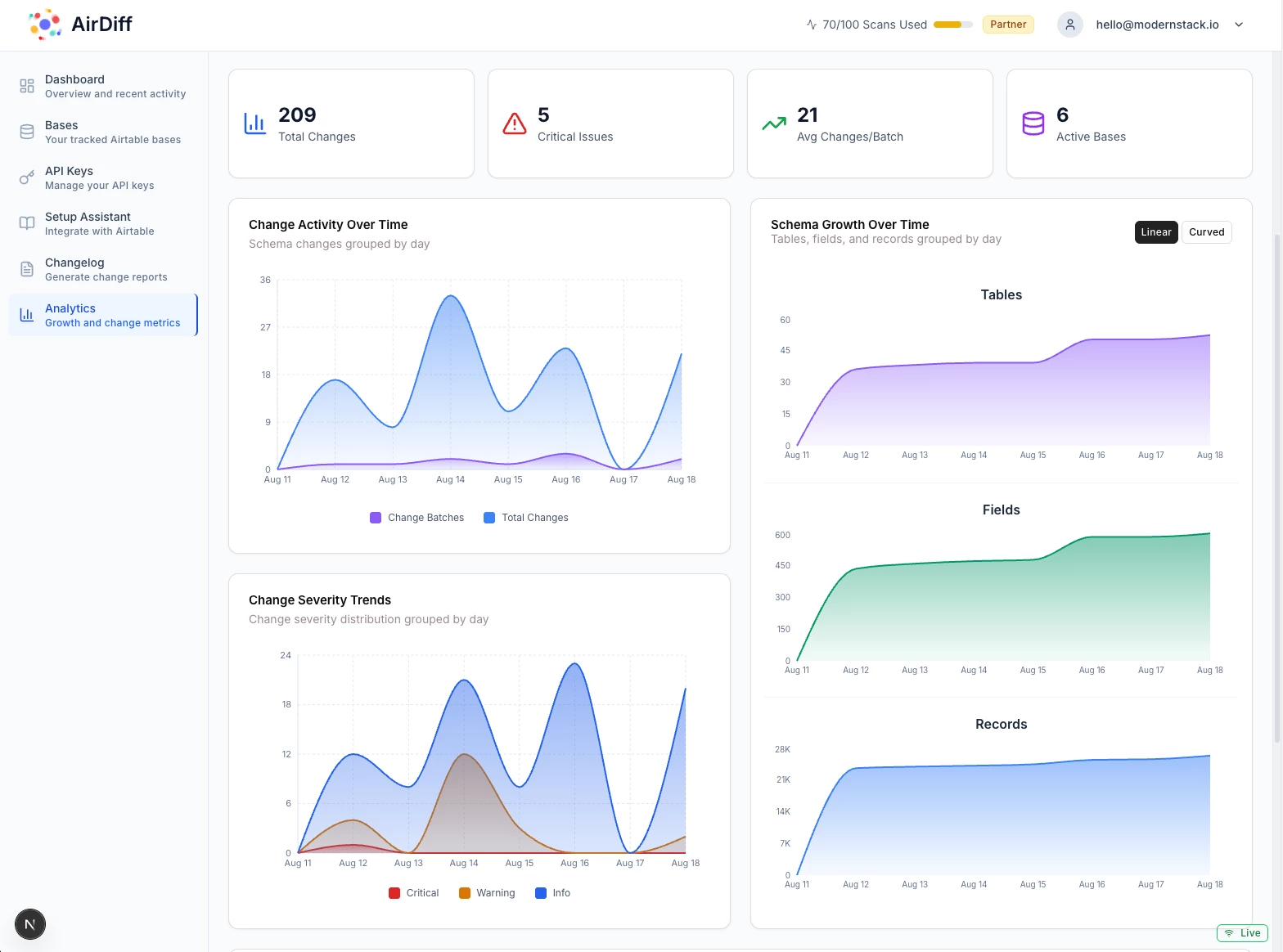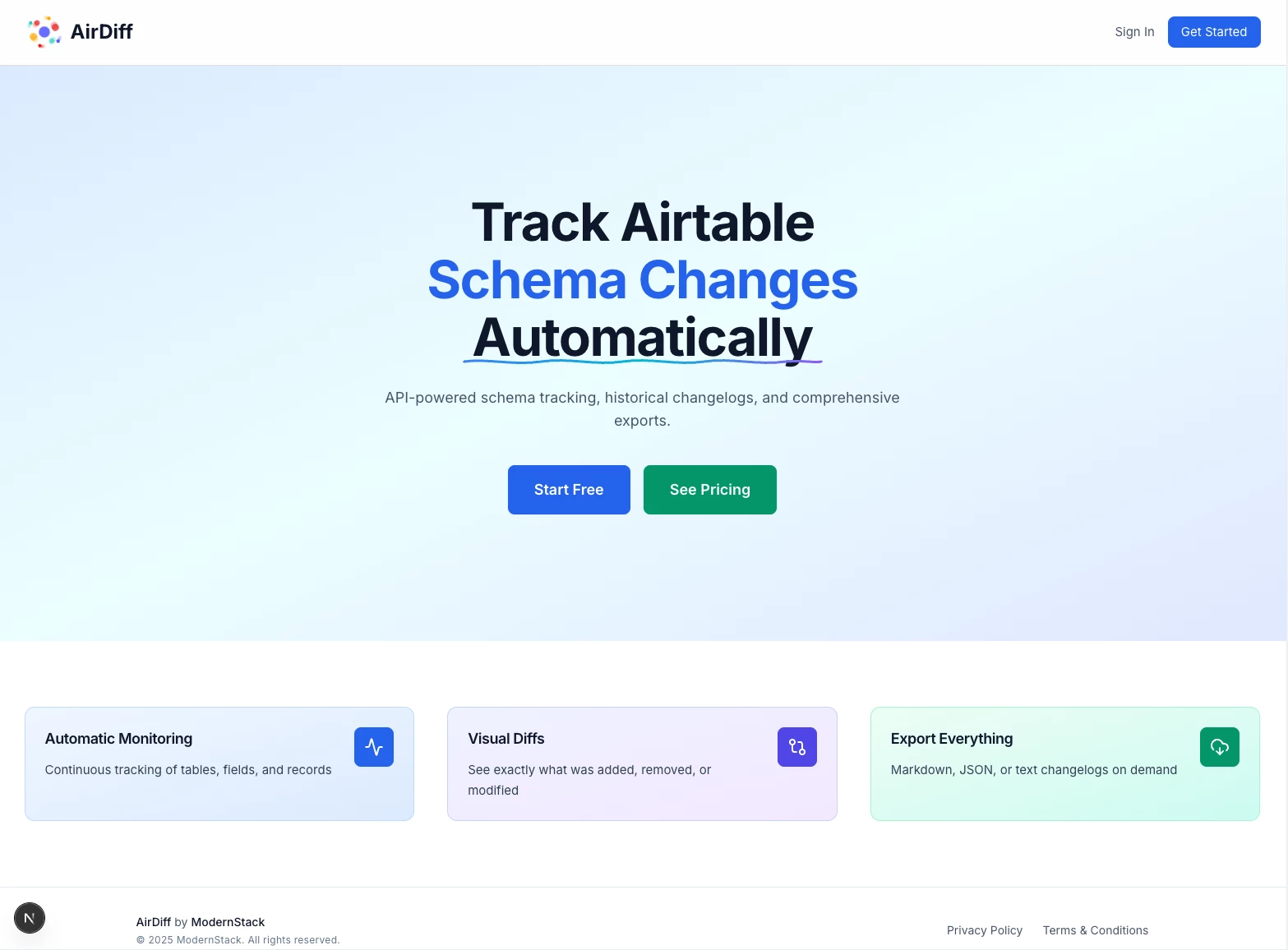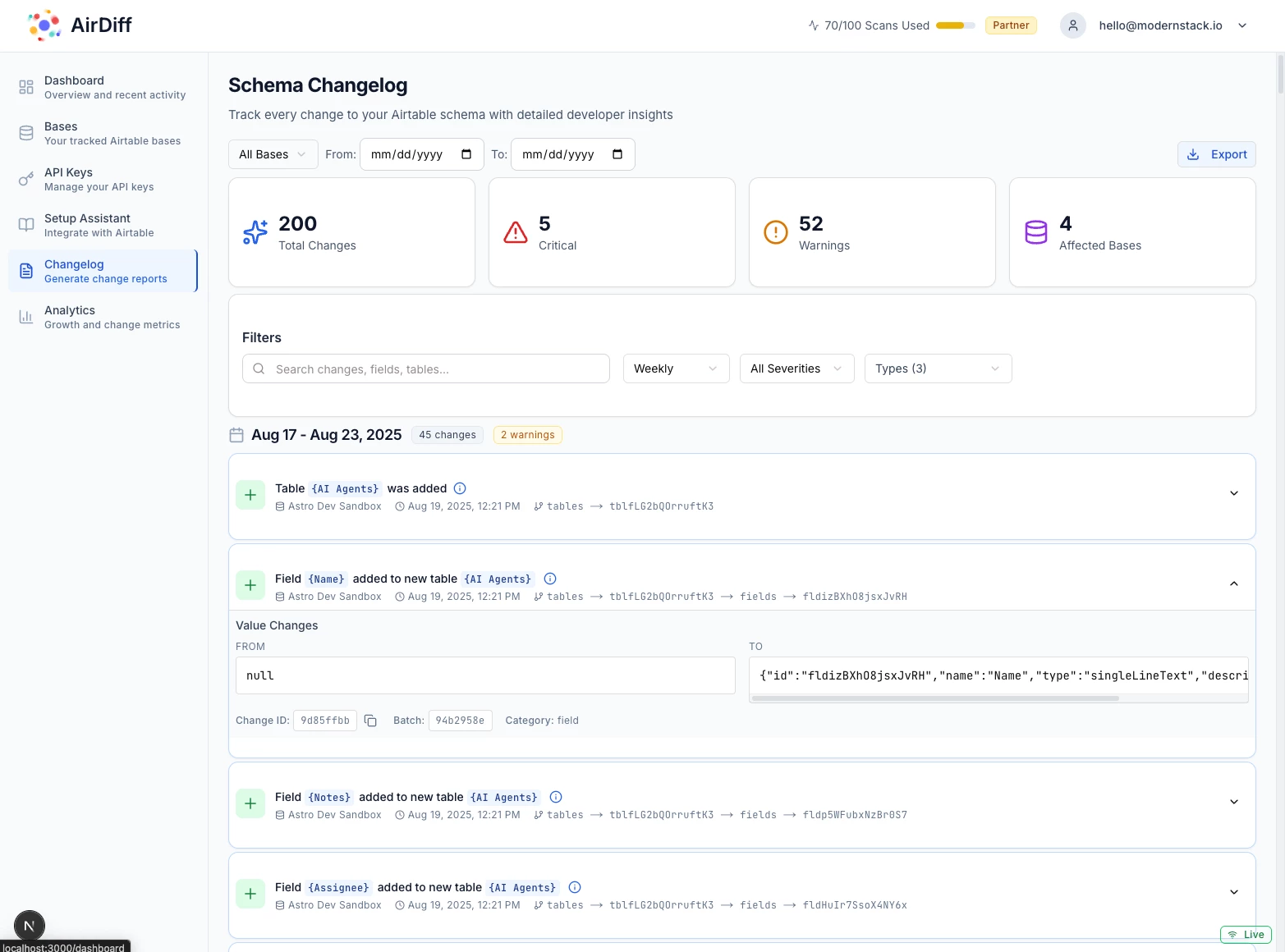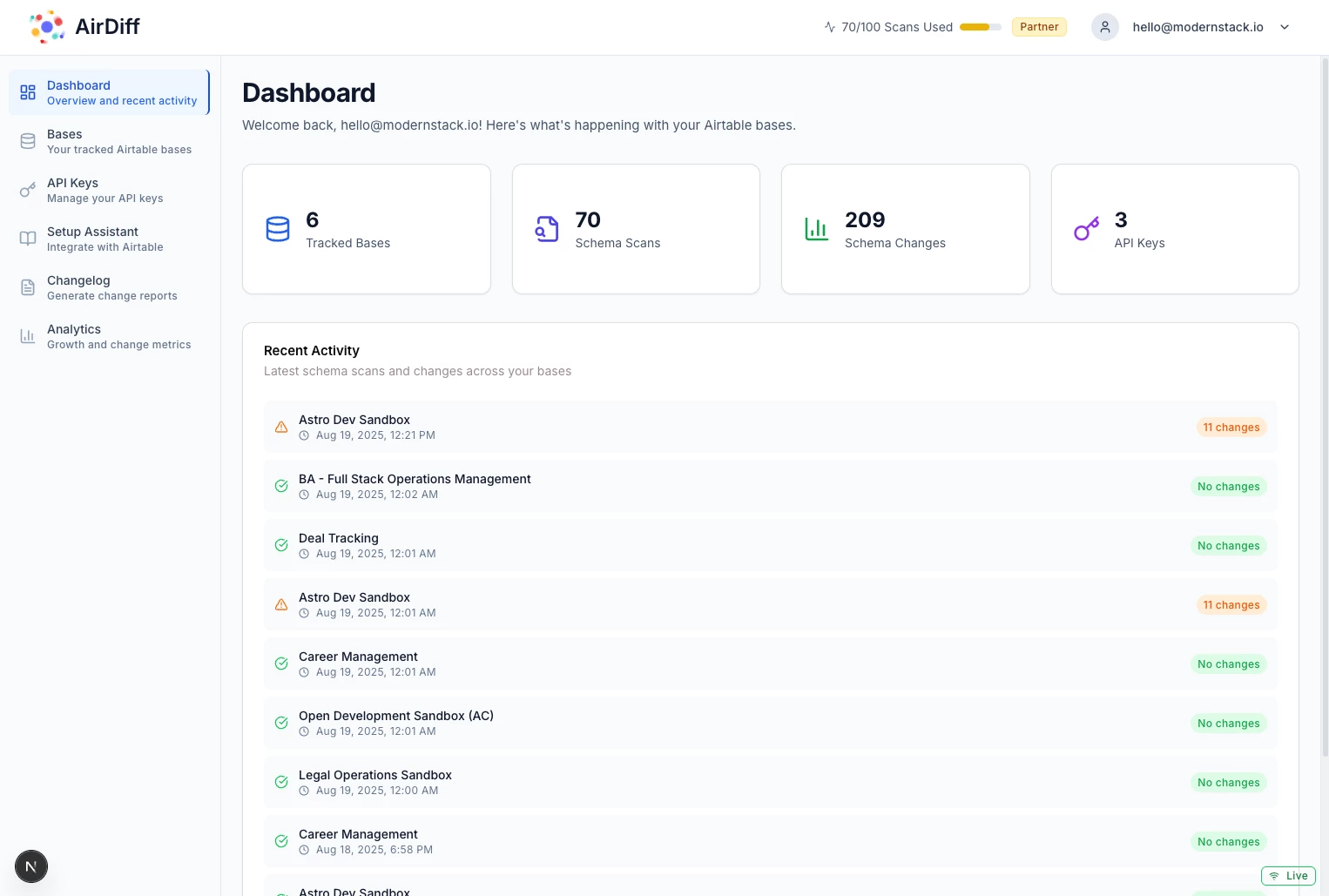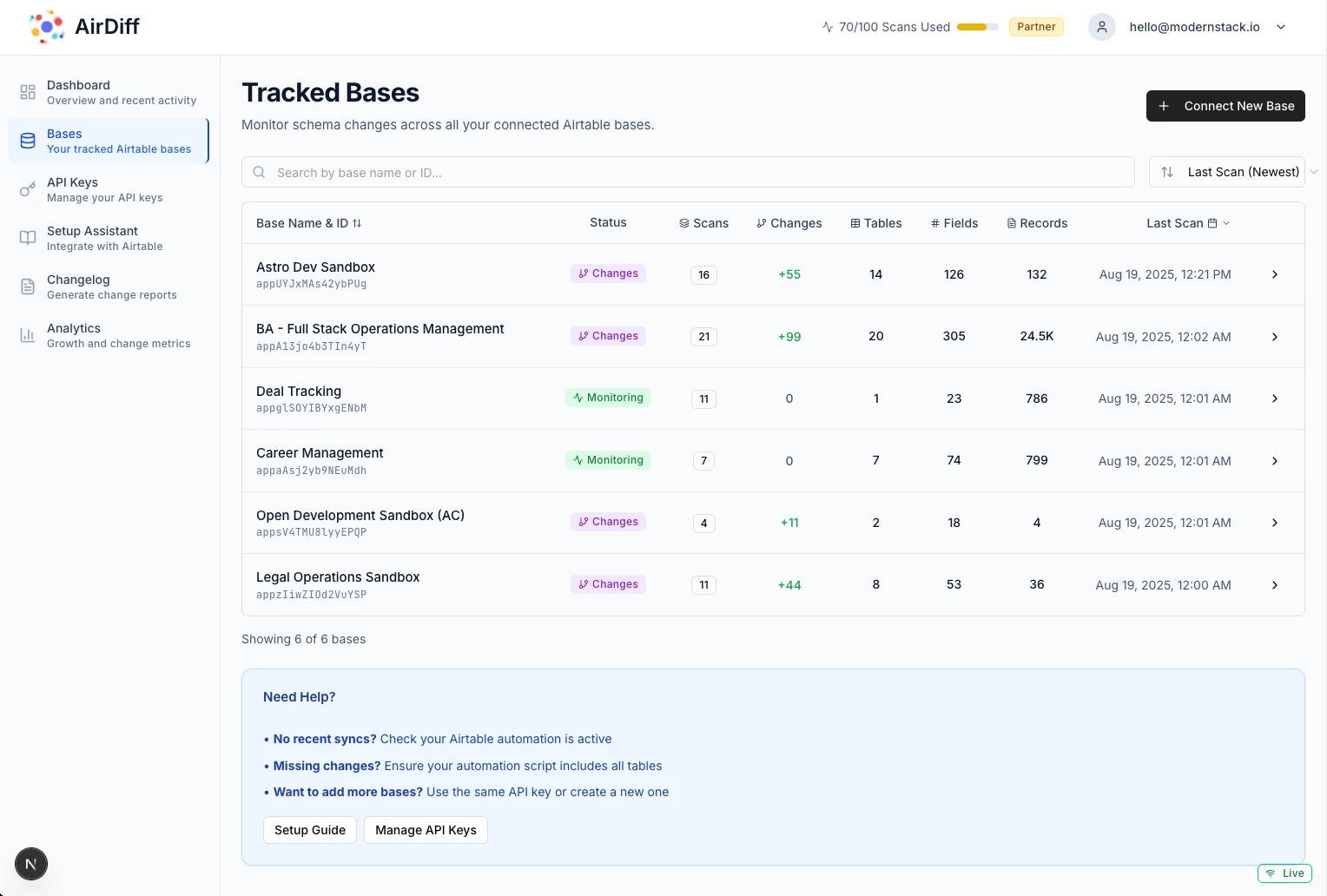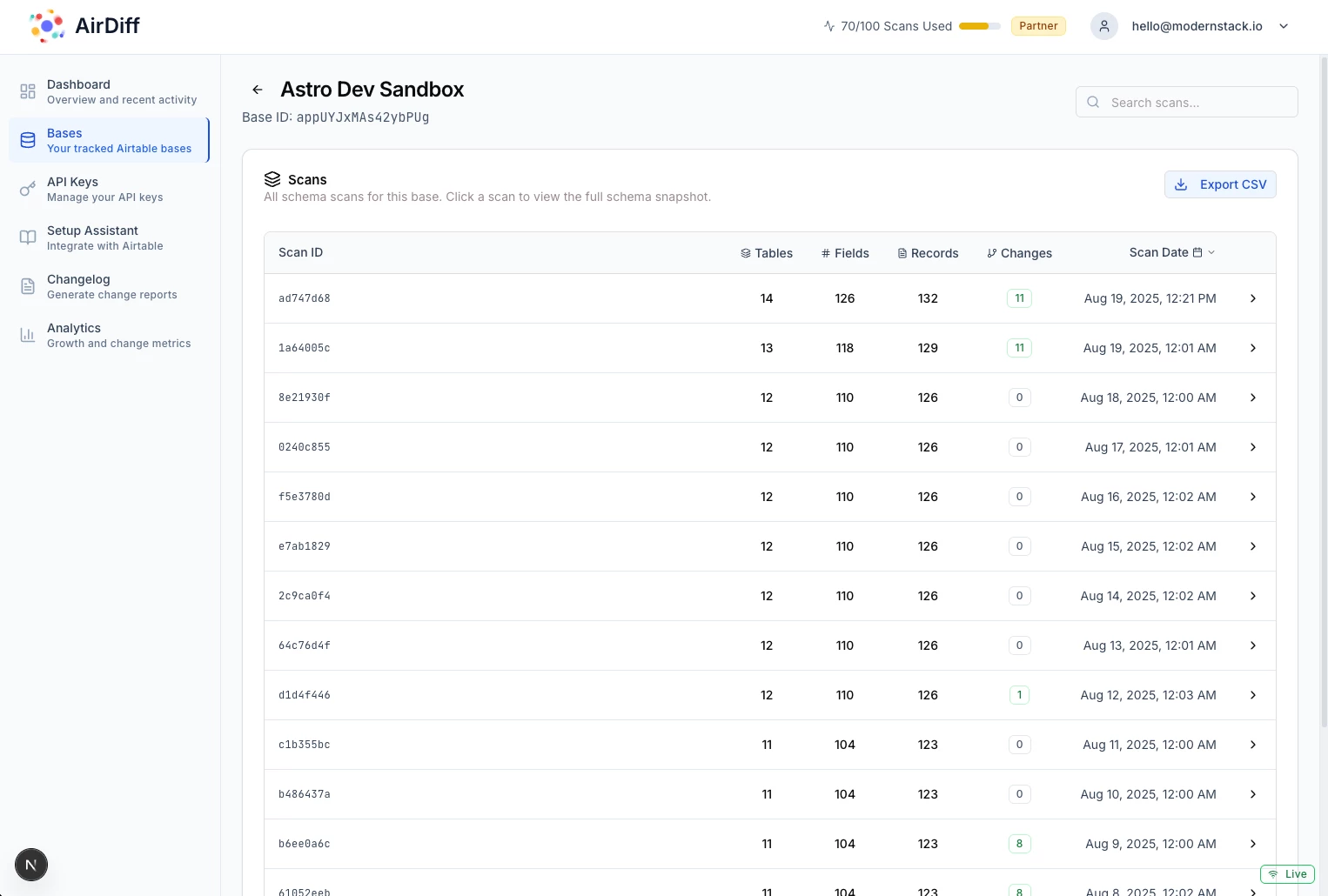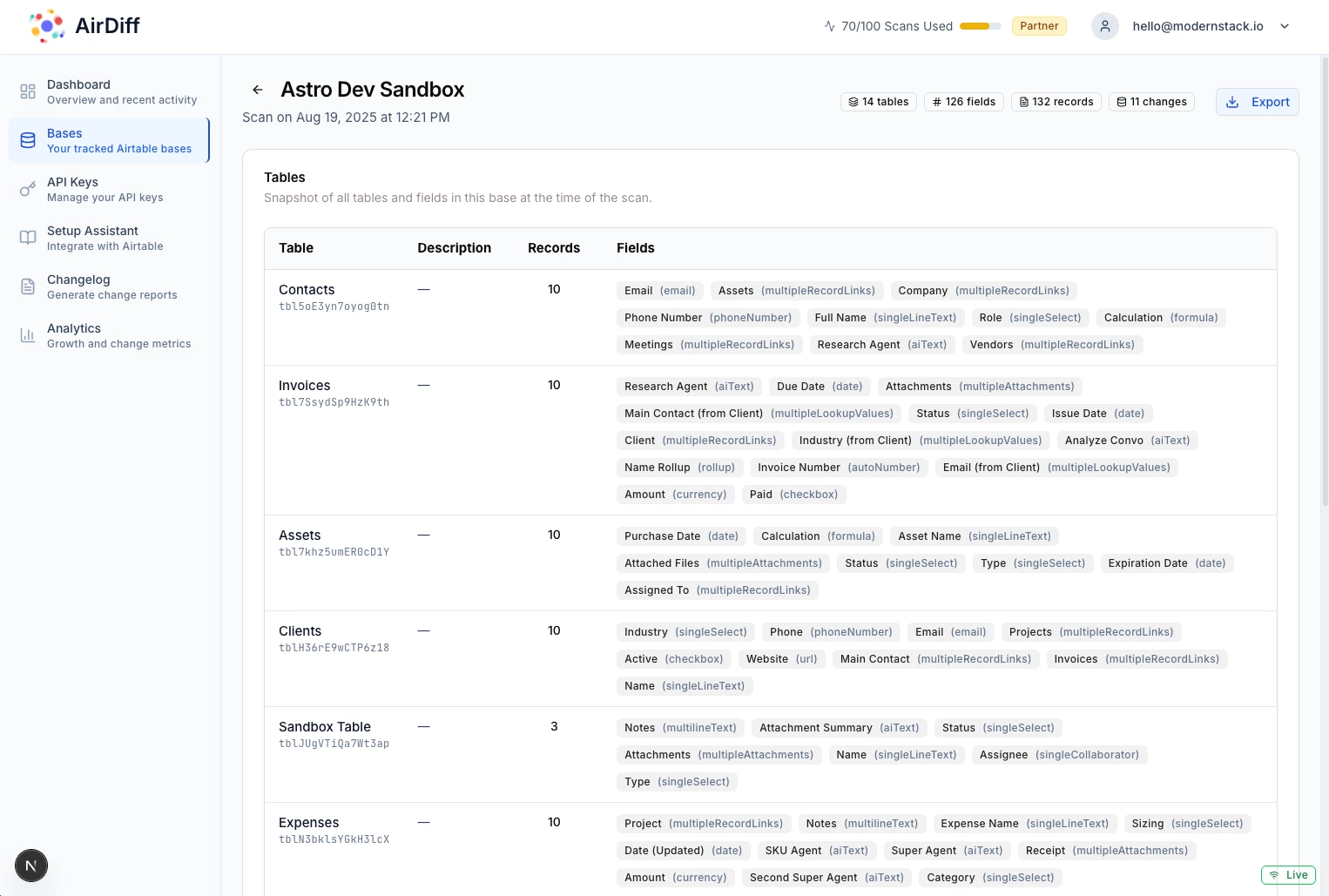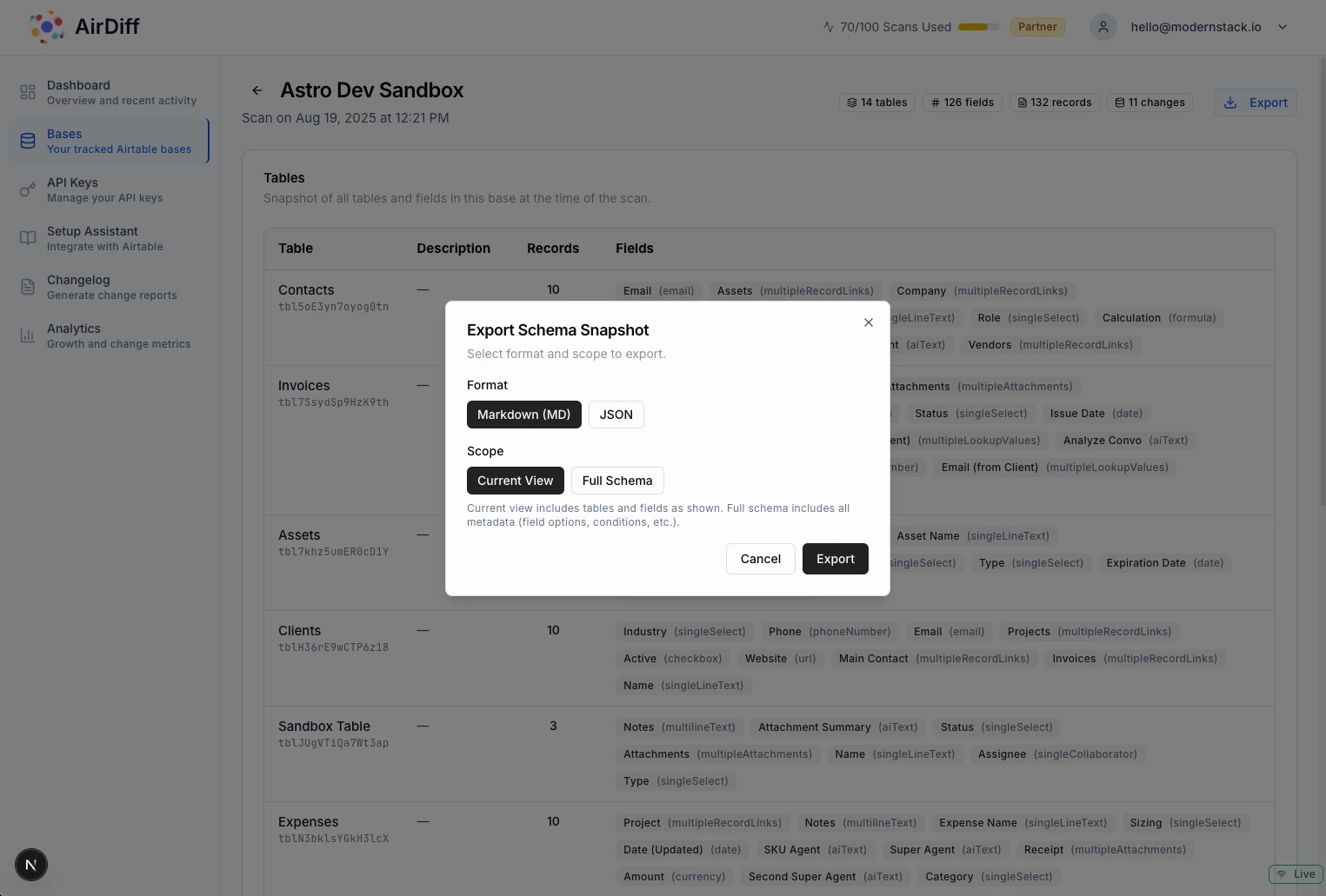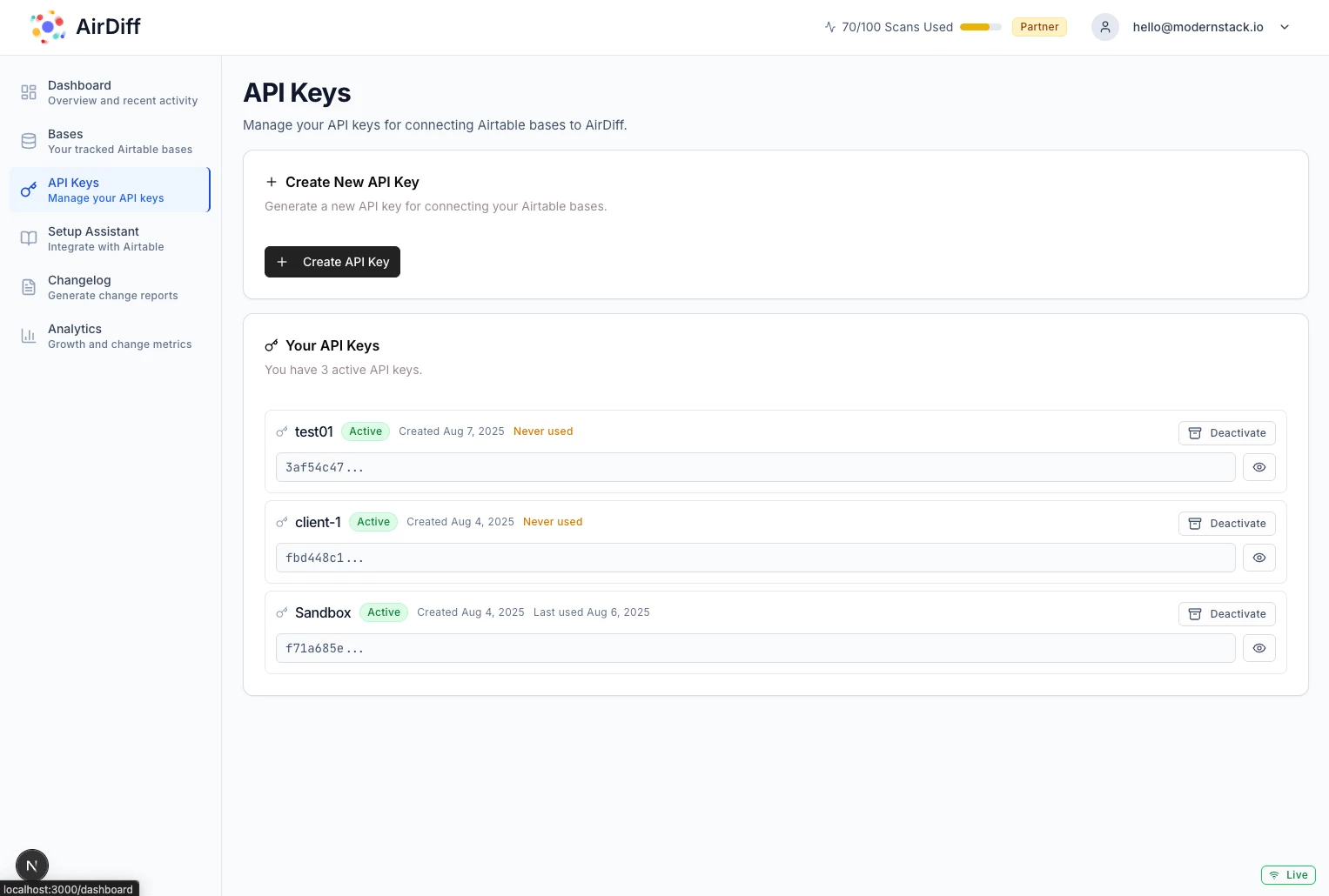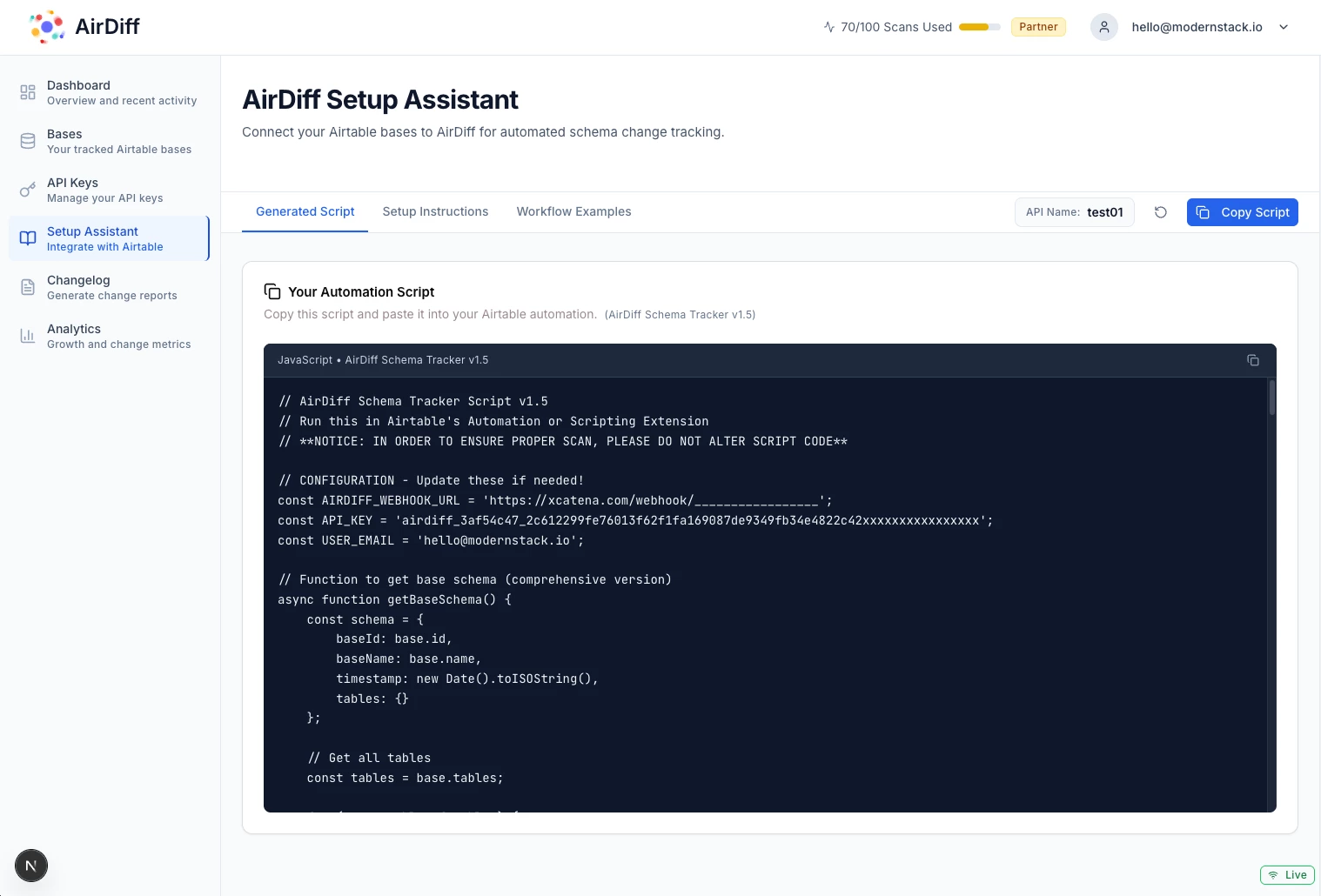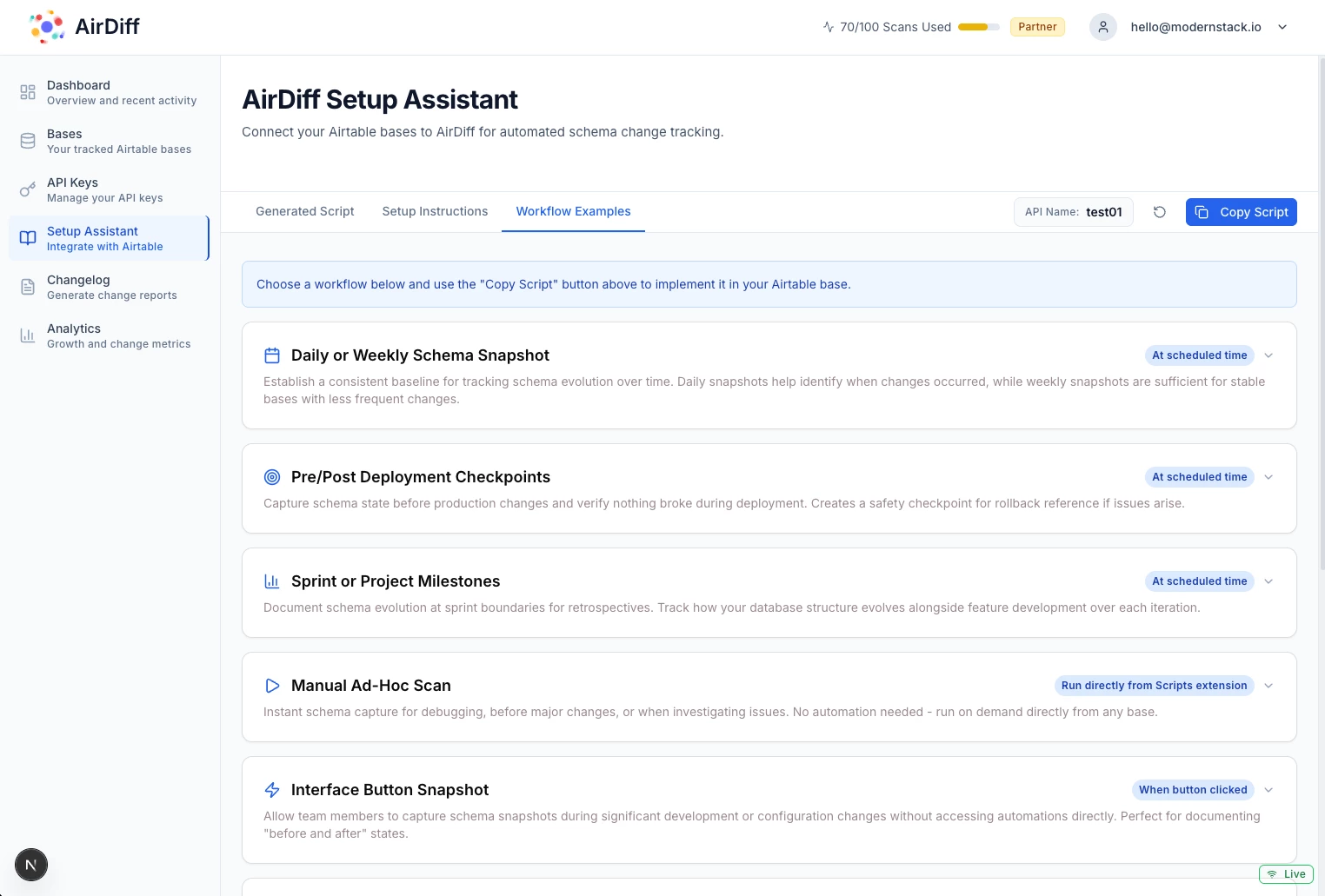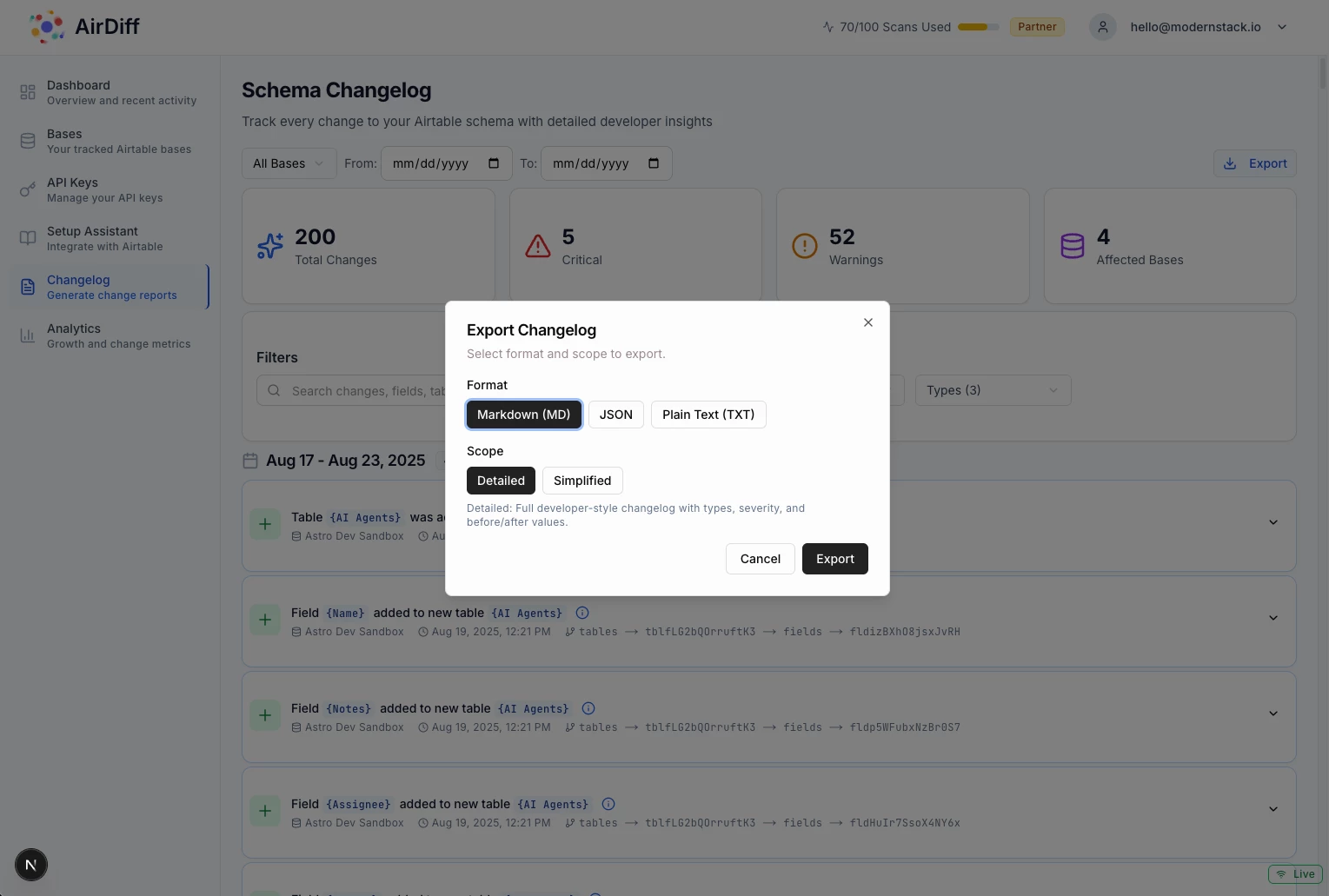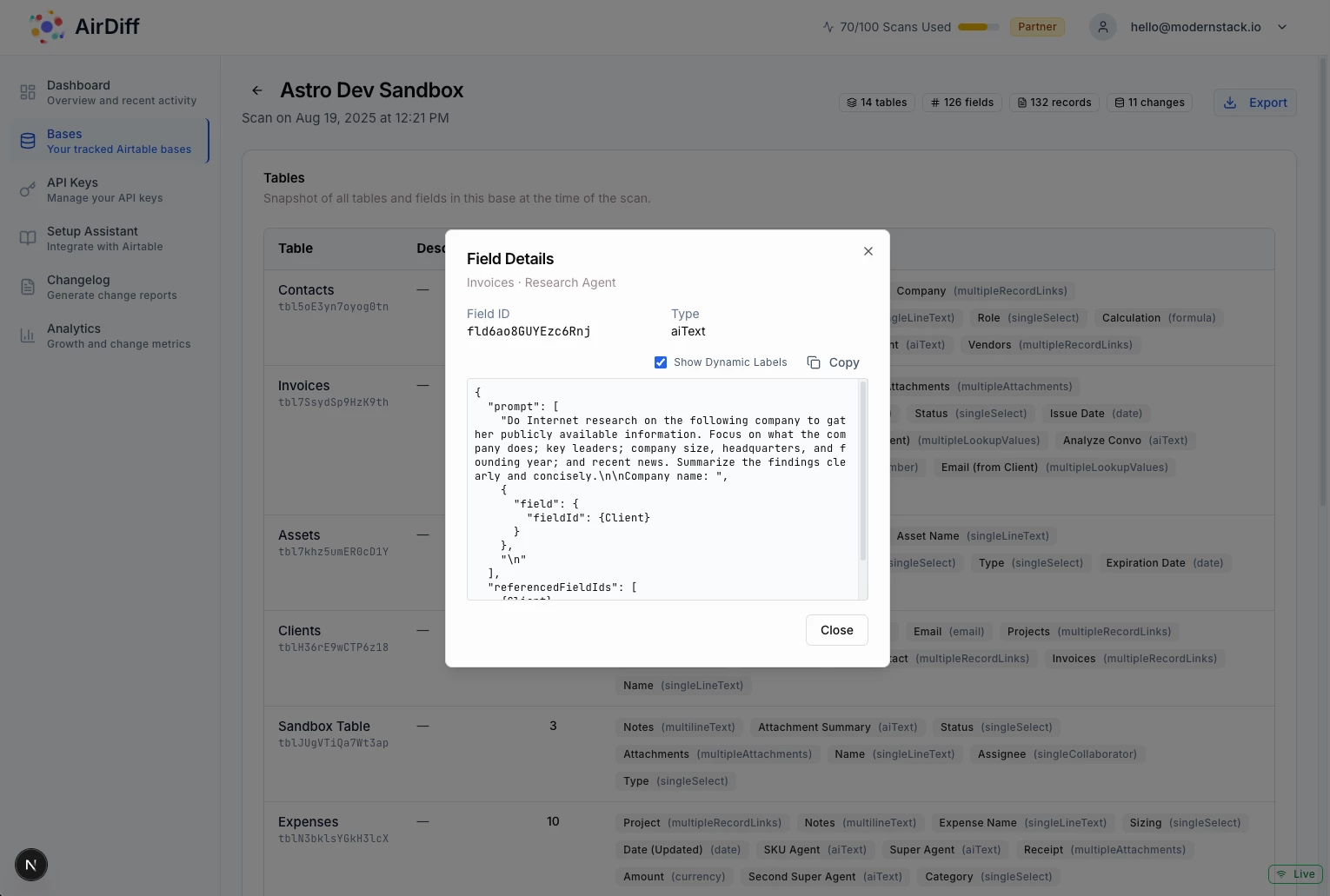Hi all, I've been building an Airtable product called AirDiff over the last ~6 weeks and wanted to share with ya'll since it might be super useful for you. It's built by an Airtable power-user, for Airtable power-users! The tech stack is Next.JS, Typescript, and Tailwind CSS on the front-end, n8n on the back-end, and PostgreSQL on the database layer.I spent a lot of time on UX, design, and making it intuitive and useful so hopefully its reflected if/when using it. The product is like a mini version of Github and Datadog, but for Airtable. (version control, observability, monitoring, historical tracking, analytics). You basically add a script to any Airtable base, and it'll track all of your schema changes through time (table creation/deletions, field creations/deletions, changing the condition of a field, the text, the choices, table view changes, etc)Some of the things you can do:
- Generate a developer style Changelog of all of the schema changes over you did on a base over the last day, week, month, etc. (Export it in .md, .json, .txt)
- Export the current state of an Airtable base today, or what it was 2 weeks ago to debug something that broke automation, a formula, etc.
- Or export the current base in Markdown so that you can upload the schema into ChatGPT, Claude, another LLM so it can get the full context of the base you're working on instantly!
- Review all of your bases that you're tracking visually to see if major changes have been made at a high level over the past week.
- See the growth of a bases's tables, fields, record count through time.
- Find what the configuration for some of your field's formulas, or Airtable AI agent's prompts were over the last few weeks or iterations.
Product: AirDiff
URL: https://airdiff.modernstack.io/
